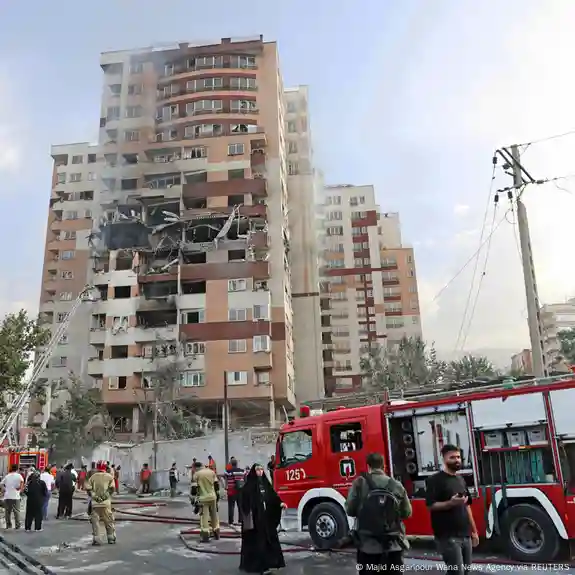
Iran-Israel war
Trump chides Israel, Iran for flouting ceasefire
President Trump lashed out at Israel and Iran on Tuesday for launching attacks after he had announced a cease-fire, highlighting the fragility of the deal that seeks to end 12 days of deadly fighting.
In expletive-laced remarks to reporters, Mr. Trump said he was “not happy.” He sharply criticized Israel for firing on Iran “right after we made the deal” and said the two adversaries didn’t know what they were doing.
A White House official said Mr. Trump had spoken with Prime Minister Benjamin Netanyahu of Israel on Tuesday morning and was “firm and direct” about what needed to happen to sustain the cease-fire, reports The New York Times.
Mr. Netanyahu’s office said Iran had fired missiles after the cease-fire took effect, and that the Israeli military had retaliated by striking a radar system near Tehran.
Iran’s military denied violating the cease-fire, and Mr. Netanyahu’s statement indicated that Israel’s retaliation was limited, which could suggest that both sides want the truce to hold.
In a Truth Social post, Mr. Trump said that Israel “is not going to attack Iran” and that “all planes will turn around and head home.”
Mr. Trump’s comments came before he left Washington for a NATO summit in the Netherlands, where a Middle East truce, if it holds, could give him a chance to claim a diplomatic achievement in a conflict that had threatened to escalate.
Over the weekend, Mr. Trump ordered U.S. forces to bomb Iranian nuclear sites, prompting Tehran to respond by firing missiles at an American base in Qatar on Monday.
Hours after Iran fired the missiles, which were intercepted, Mr. Trump abruptly announced a cease-fire between Israel and Iran, with few details, catching even some of his own officials by surprise.
In the last moments before the cease-fire took effect, both sides continued to trade fire. The Israeli military said it had struck missile launchers in western Iran that were poised to fire at Israel. Iran launched at least four barrages of ballistic missiles at Israel, setting off sirens that sent millions of Israelis rushing in and out of shelters. At least four people were killed when a missile hit an apartment building in the southern city of Beersheba.
At a glance
• Global reaction: The cease-fire announcement was welcomed, albeit cautiously, by world leaders. “If a cease-fire has indeed been achieved, then that can only be welcomed,” said Dmitri S. Peskov, the spokesman for President Vladimir V. Putin of Russia. “We hope that it will be a sustainable cease-fire.” President Emmanuel Macron of France praised the cease-fire announcement but warned that “the situation remains volatile and unstable.”
• Turning point: A turning point in the war came when the United States joined Israel’s campaign on Sunday, striking three nuclear sites, including a subterranean facility that had been largely impenetrable to Israeli attacks. Iran responded on Monday with a missile attack on a U.S. base in Qatar, in a move that was telegraphed in advance, allowing American troops to evacuate or shelter in time and creating space for de-escalation.
• Investors relieved: News of the cease-fire sent markets higher in Asia, where countries need energy imports to power their economies. Stocks in South Korea surged the most at 3 percent. S&P 500 stock futures were about 1 percent higher, signaling an expected rise when trading begins in New York. The price of oil has fallen back to around where it was before Israel first attacked Iran nearly two weeks ago.
• Victory narrative: Iran’s response to the attacks on its nuclear facilities killed no Americans, and analysts say that gave every side a narrative for victory, while avoiding the risk of stumbling into a larger conflict with severe consequences for the region and beyond.
